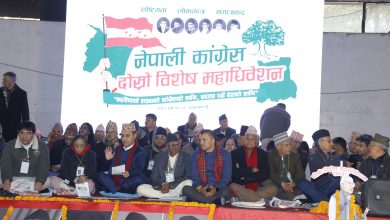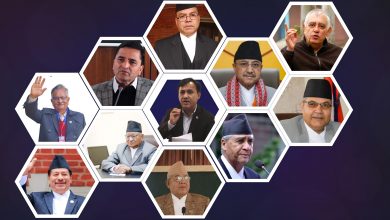Rising Above Crisis, Nepali Psychologists Set Example

SP Upreti
Mental health professionals of Nepal have proactively supported individuals in strengthening their emotional well-being during emergencies. Recently, Nepal witnessed major casualties during Gen-Z led movements, floods and landslides followed by heavy rainfall. During these challenging times, the professionals have demonstrated their social responsibilities and professional expertise to help people cope up with distress and maintain their mental wellness.
The psychologists initiated their efforts right after the Gen-Z movement, emphasizing the importance of self-care and staying safe. The activities they started included online sharing among professionals, allowing them to reflect and realize their own feelings during the movement and how they are coping up and maintaining mental peace across multiple dimensions. Some professionals individually involved themselves with the aim of supporting others in need while others joined hands through their organizational channels. They selflessly contributed to these activities, helping individuals move beyond the crisis.
Kapil Sharma, a Counselling Psychologist and founder of Better Mind, states that experts make a real difference and should be able to work whenever society needs them the most. However, he admitted that he too struggled to regulate his emotions during the turmoil. “For a couple of days, I was even struggling with regulating my own emotions. That’s why I didn’t get a chance to think about how I or we could contribute back to the country or the community,” said Sharma.
According to him, the professionals were working individually, but after a couple of days, they tied up as a team and started the Psychological First Aid (PFA) sessions for mental health professionals and named it ‘Safe Space’, where the professionals and all the community members who needed someone to listen were provided with a safe space.
Subsequently, orientation sessions for psychology professionals, including counsellors, psychologists, health workers, and social service workers, were conducted to help them manage emotional challenge during the crisis. They also provided listening ears to create a safe space for the general population and letting them feel that they are not alone.
These led to the realization of the need for a formal umbrella organisation to coordinate joint efforts and help ventilate emotional distress from service receivers to providers. This realization led to the formation of Mental Health Professionals Association Nepal (MHPAN), aimed at promoting the mental well-being of individuals.
Sharma highlighted that some of the major initiatives undertaken included creating a safe space for the public to share and provide listening ears to them with acknowledgement of validation, empathy and emotional support. On World Mental Health Day (October 10), the organization hosted a program called ‘Walk and Talk’, at the Pashupatinath Temple site, one of the the most crowded areas of Kathmandu. Including 15 professionals, they proceeded to ask people very simple queries: How are they, how do they take things, is there anything they need support for?
Similarly, they organized a psychosocial campaign in Balkhu for the children affected by unexpected floods in September, orienting psycho-education and the general emotional support. Local people focusing on children were the participants at this camp, sharing their things with professionals, and reported immediate emotional relief.
On the question, why did you engage yourself in these activities voluntarily, Sharma replied, “It is our social responsibility to support people in need. Therefore, with 100 professionals, we worked in different areas to support individuals, at least to make them realise that they are sharing their things with the right receivers and helping them to rise again from the emotional turmoil.”
Psychologist, Pujan Sharma, mentioned that different professionals were involved in various well-being activities, webinars, workshops, side talk programs and some provided PFA as well. According to her, some of the PFAs were conducted first to strengthen the skills of professionals. During the sessions, she facilitated the core principles of PFA of look, listen and link and also emphasized identifying an individual’s emotional distress. The session also included methods of psychological assistance.
Both Sharma and other professionals have the same motive of setting good examples during worse scenarios. These collective efforts during hard times promote emotional stability and good support for each other and serve as a beacon for both local and global communities.










Comments